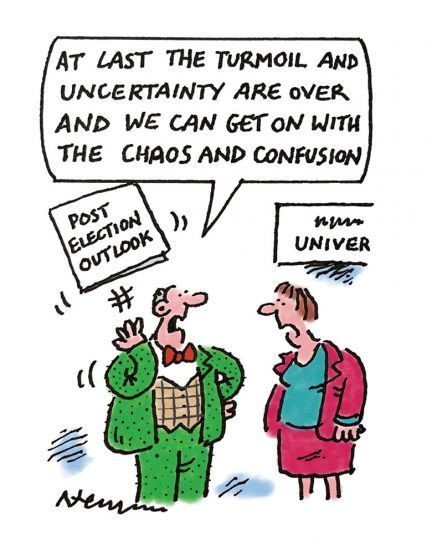
Sam Gyimah’s unlikely political career – from red-baiting Tory higher education minister to no-deal Brexit refusenik and then Liberal Democrat candidate – seems to have ended after he failed to spring a shock win in Kensington. Despite securing a 9.1 per cent swing to the Lib Dems and 9,312 votes, Mr Gyimah’s campaign ultimately opened the door for Tory candidate (and Brexiteer) Felicity Buchan to take the seat with a 150-strong majority over Labour’s Emma Dent Coad. Mr Gyimah’s defiance towards a no-deal Brexit from the back benches will, however, have won him more plaudits from higher education than his time as minister. Another casualty of the UK general election was Labour’s Gordon Marsden, the long-time shadow higher education spokesman, who lost his Blackpool South seat after 22 years, as Boris Johnson’s party stormed Labour’s Lancashire heartlands. Having been one of the 35 MPs to nominate Jeremy Corbyn for the leadership four years ago, the former Open University history lecturer might well reflect on his role in his party’s crushing defeat.
A Belgian child prodigy who hoped to graduate from university this month has dropped out. Nine-year-old Laurent Simons was aiming to complete a three-year electrical engineering degree at Eindhoven University of Technology before his birthday on 26 December so he could be the first university graduate aged under 10, BBC News reported. But the institution told his parents that there were still too many exams for him to take before then, suggesting that he finish in mid-2020 instead. This prompted the parents to withdraw him from the course. The child genius may now risk looking like something of a late developer in comparison with a 15-year-old Scot who has just begun a PhD in health sciences. With a master’s from the University of Sheffield to his name already, Wang Pok Lo is now embarking on a doctorate at the University of Edinburgh, The Times reported. “I didn’t expect to be accepted due to my age,” said Pok, who understandably did not seem too worried about the prospect of taking his Scottish higher exams next year.
The growth of collaboration in research has often led to calls for a rethink about how prizes are awarded, with suggestions that even flagship honours such as the Nobels change their approach. Now a learned society in the UK appears to have taken up the baton by deciding to award more prizes that recognise team science, technicians and interdisciplinary research. Currently, the vast majority of the 90 prizes awarded by the Royal Society of Chemistry go to individuals. But after an independent review, there will be “more opportunities for teams and collaborations to be recognised for their work” as this “more closely reflect[s] how science is carried out today”. The society will announce its new suite of awards next year.
The jury is still very much out on the ability of alternative metrics, such as social media mentions and website clicks, to accurately gauge the impact of research on the real world. However, an annual list of articles that achieved online attention this year does show that truth and authenticity were core concerns for science and society in 2019. For instance, two of the top 10 papers in the Altmetric list – which scores online impact using weighted scores for the different ways research is shared – are about research integrity. One was a major call for research to stop using statistical significance as a way to prove a hypothesis; the other was a satirical look at randomised controlled trials that used people jumping out of planes without a parachute (albeit a few feet above the ground) to show how medical trials could be skewed.
The end is nigh for one of England’s great higher education traditions – first-class cricket fixtures, The Times reported. Six university centres – Oxford, Durham, Loughborough, Cambridge, Cardiff and Leeds-Bradford – are set to lose the funding they receive at present from the England and Wales Cricket Board, which allows them to play first-class matches against 18 counties, usually in damp March or April. It will also spell the end for some memorably one-sided clashes between touring international teams – notably, the fearsome West Indies sides of the 1960s and 1970s – and brave student cricketers. Today’s ambitious young county cricketers may also rue not being able to fill their boots with some easy early-season runs or wickets once the fixtures are consigned to history in 2021.